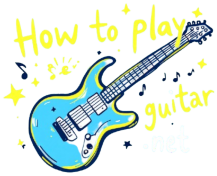Ordering Guitar Effects
Guitar effect ordering isn't rocket science and there's no exact regulation to follow here. Below is the generic effect order that is correct for most situations.
Anyway, a lot of things will depend on your liking and style.
| Guitar ↓ |
| Tuner ↓ |
| Preamp ↓ |
| Compressor ↓ |
| Overdrive/Distortion ↓ |
| Noise Gate ↓ |
| Pitch Effects (Pitch Shifter, Harmonizer, Vibrato, Octave Effect) ↓ |
| Wah/Envelope Filter ↓ |
| Modulation Effects (Chorus, Flanger, Phaser, Tremolo) ↓ |
| Equalizer ↓ |
| Delay (Echo) ↓ |
| Reverb |
Use this effect chain diagram as a starting point and feel free to play around with different effect placements.
For instance,
the Noise Gate can also be plugged before the Reverb or Distortion. Many guitar players put the EQ and the Phaser before the Distortion too, although putting the Distortion after the Delay or Reverb usually produces an unwanted "liquid" sound.
Anyway, I've seen some guys putting the Distortion after the Delay on purpose in order to create some kind of a weird noise when they were recording a track.
Now I'll show you an example of how to apply this chart to a real situation. Let's say you have three effect pedals: a distortion, chorus, delay, and a tuner.
Going from the top to the bottom of the diagram and skipping the effects you don't have, you'd connect the pedals in the following order:
- The guitar plugs into the tuner
- The tuner plugs into the distortion
- the distortion into the chorus
- the chorus into the delay
- the delay into the amplifier
Although the guitar tuner isn't really an "effect" and it's not supposed to change your sound, the best place to put it in the effects chain is right after the guitar, before any other pedal. This way, it will work in the most precise way, because the modified sound from other effects won't interfere with the pitch recognition mechanism.
Return to Getting the Right Sound for Riffing Page
